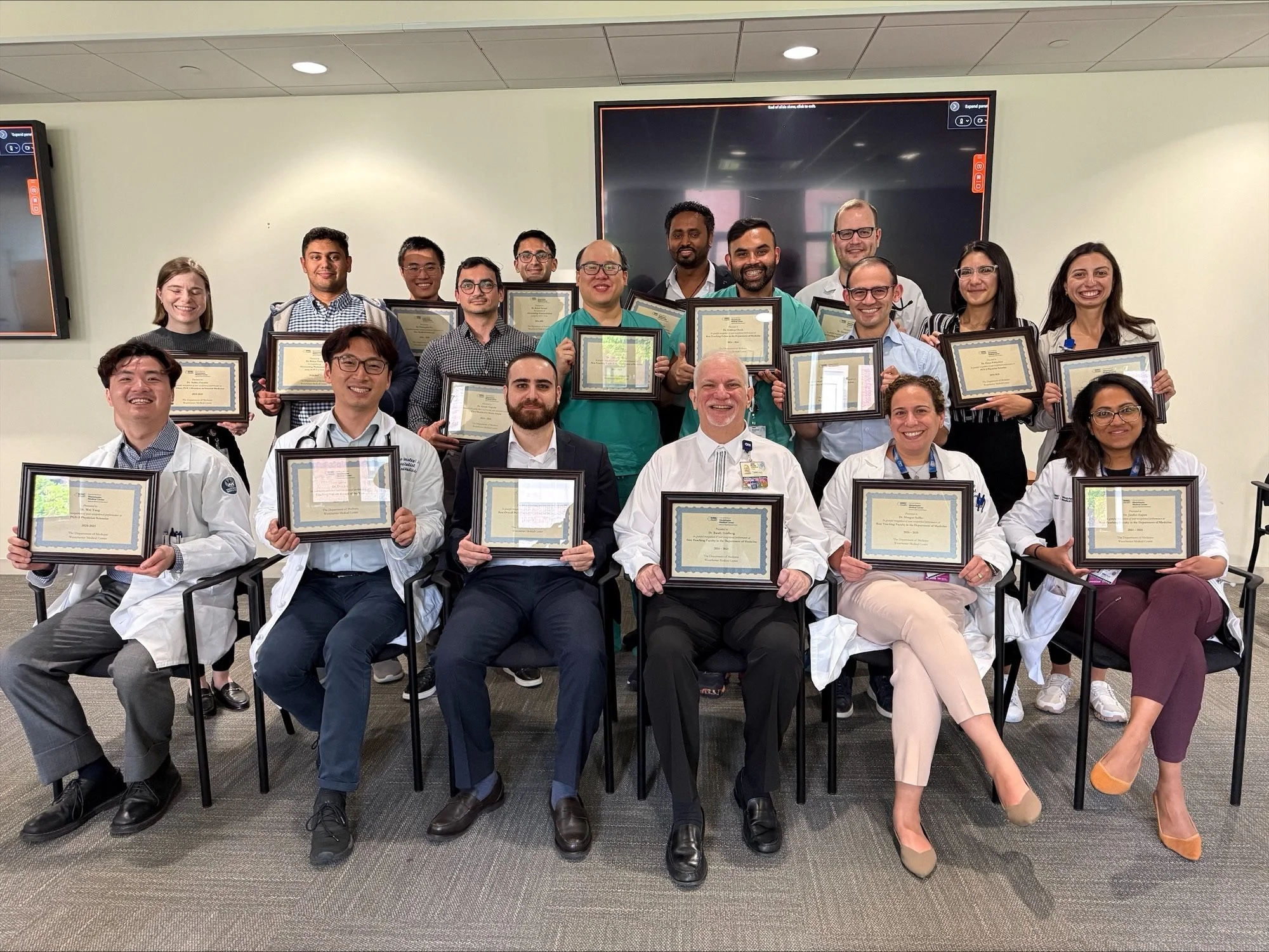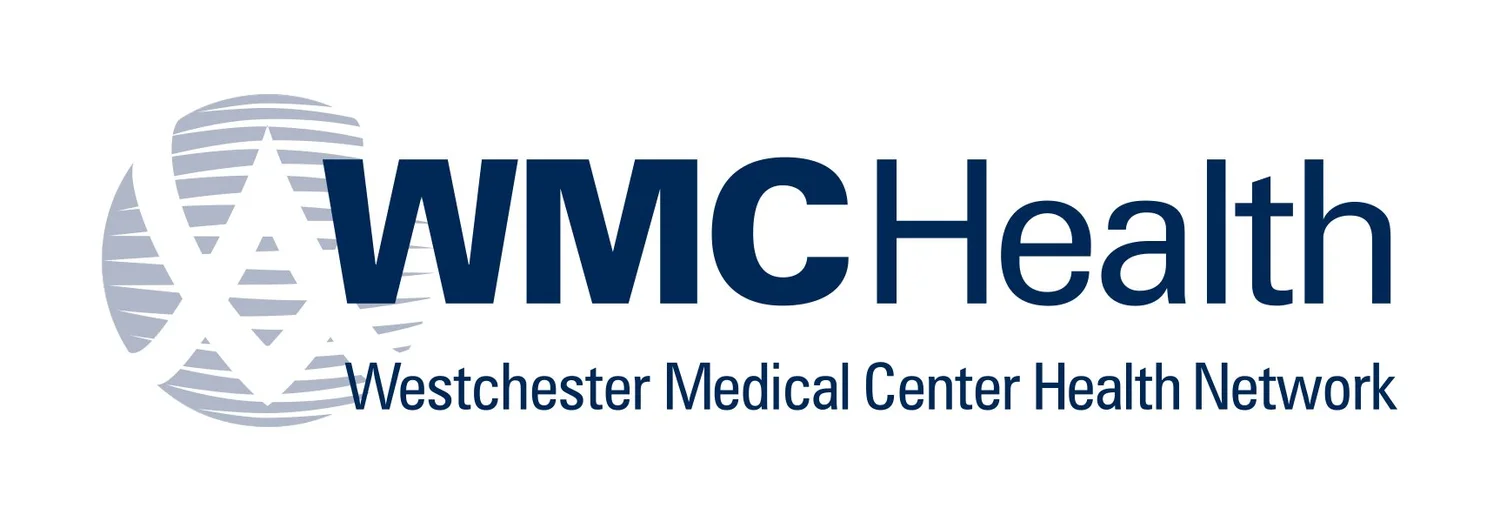
Academics
Our Program Curriculum
-
10-14 weeks: Medicine floors
Four to six weeks: Specialty floors (Transplant and General Cardiology Service)
Four to six weeks: Medical Intensive Care Unit (MICU)
Two to four weeks: Cardiac Care Unit (CCU)
Six to eight weeks: Elective
Four to six weeks: Night Float
Eight to 10 weeks: Ambulatory Clinic
Two to four weeks: Medicine Consults / Admitting team
Four weeks: Vacation
-
Four to eight weeks: General floors
Four to eight weeks: Specialty floors (Transplant or General Cardiology Service)
Eight to 10 weeks: Elective (including 2-week Neurology selective)
Two to four weeks: MICU
Two to four weeks: CCU
Six to eight weeks: Night Float / CCU Night Float / ICU Night Float
One to two weeks: Night Float cross coverage (5 nights/week)
Eight to 10 weeks: Ambulatory Clinic
Two to four weeks: Medicine Consults / Admitting team
Two to four weeks: backup home call
Four weeks: Vacation
-
Six to eight weeks: General floors
Two to four weeks: Oncology (Solid Tumor) inpatient service
Eight to 10 weeks: Electiv
Two to four weeks: MICU
Four to six weeks: Night Float / ICU Night Float
Eight to 10 weeks: Ambulatory Clinic
Two to four weeks: ICU Consults
Four to six weeks: Medicine Consults/Admitting team
Two to four weeks: backup home call
Four weeks: Vacation
-
7 a.m.Morning Sign-in
7:30 a.m.Morning Report (on Wednesday and Thursday)
9 a.m.Interdisciplinary Rounds
9:30 a.m.Hospitalist Team Bedside Rounds
12:30 – 1:30 p.m.Afternoon Conference (Didactics)
5 p.m.Sign-Out to late call team
-
Each resident will have 3-4 late calls (5 p.m. – 9 p.m.) over a 2-week Medicine Floor rotation
-
Senior Residents: Six nights/week from 9 p.m. – 7 a.m.
PGY1 Residents: Round robin with 2-3 colleagues adding to 2-3 nights off per two-week blockSenior Residents only: Rotating 5 nights a week, giving colleagues their night off
-
24/7 phlebotomy shifts
IVs & PICC/midlines by trained nurses
EKG technicians 24/7
X-Ray technicians 24/7
Patient transport service 24/7
Patient experience representation seven days/week
Our residency program provides a structured and comprehensive didactic curriculum that complements clinical training. Teaching sessions are delivered in a variety of formats and are designed to support both board preparation and the development of strong clinical reasoning skills. Residents have protected time for these conferences, ensuring they can fully engage in learning without clinical interruptions.
Academic Opportunities
-
Afternoon Conference is held 2-3 days a week and consists of a one-hour protected teaching session for all residents. Conferences are organized into topic-based blocks and presented by subspecialists, offering a structured approach to core subjects and board preparation.
The curriculum is designed not only to prepare residents for the ABIM certification exam but also to build confidence and maturity in clinical decision-making. Lectures are delivered both in person and virtually, and all sessions are recorded and archived, allowing residents flexibility to revisit material as needed.
-
1-2 days a week, during the afternoon conference slot, residents participate in a variety of case-based teaching sessions. These include:
Chairman’s Rounds: Interns present an interesting inpatient case, with discussion and teaching facilitated by the Department Chair.
MICU/CCU Rounds: A senior resident and intern present a recent critical care case they managed together, with discussion led by a Medical ICU or Cardiology Critical Care attending.
Journal Club: A senior resident leads the presentation and critique of a recent article in collaboration with faculty.
Mini Tumor Board: A hematology/oncology case is presented with input from multiple disciplines. Discussion is facilitated by an oncology attending and incorporates updated literature to guide cancer management.
Morbidity and Mortality (M&M): Selected cases are reviewed to identify opportunities for improvement in clinical care and systems-based practice. Sessions are facilitated by the Section Chief.
Transplant Hepatology Rounds: Residents present and review complex hepatology and transplant cases under the guidance of the Transplant Hepatology team, with focus on evidence-based management and multidisciplinary care.
Quarter in Review: Resident collaborates with faculty to highlight recent advances and landmark studies in a designated field, providing residents with up-to-date knowledge relevant to clinical practice.
-
Recognizing the growing importance of point-of-care ultrasound (POCUS) in internal medicine, our program offers all residents a comprehensive, longitudinal POCUS curriculum led by Dr. Sauthoff, an internationally recognized leader in the field. Each resident begins with a 2–3 day “boot camp,” supported by pre- and post-course learning materials, to build foundational skills.
Throughout the year, residents continue hands-on POCUS practice, develop a portfolio of images, and periodically review cases with faculty. The curriculum is designed to advance both competence and confidence in clinical ultrasound, with structured pathways that support residents in working toward POCUS certification.
POCUS Conference is held twice monthly and is resident-led with supervision from Dr. Sauthoff. During these sessions, residents present and discuss their own POCUS images and videos, share notable cases, and examine how ultrasound findings have shaped clinical decision-making. The conference provides ongoing feedback, fosters skill development, and helps residents progress toward certification in point-of-care ultrasound.
-
Residents participate in a protected half-day each week dedicated to ambulatory education. During this time, teaching sessions focus on topics relevant to outpatient and primary care practice, with special emphasis on health maintenance, chronic disease management, and preventive care.
-
Every Wednesday from 12–1 p.m., our department gathers including residents, fellows, and attendings for Grand Rounds. Distinguished guest speakers and faculty experts present on a wide range of clinically relevant and timely topics.
-
Morning Report takes place every Wednesday and Thursday at 7:30 a.m. Senior residents present overnight admissions and recent cases, with discussion guided by hospitalists and chief residents. These sessions provide a practical forum to review clinical management, share learning points, and strengthen diagnostic reasoning.
-
Residents participate in a range of simulation-based educational experiences at both Westchester Medical Center and New York Medical College. We have ample opportunity to utilize the clinical skills lab and point-of-care simulators at WMC and the Clinical Skills Simulation Center at NYMC, which features multiple simulators and standardized patient actors. Training is enriched through collaboration with advanced nursing educators and various specialty services, supporting the development of communication, procedural, and practical clinical skills.
This year (2025-2026), we are launching a new procedure clinic within our ambulatory clinic, where residents will learn alongside skilled faculty to perform basic outpatient procedures, such as joint injections, Pap smears, and skin biopsies. (This is just one example of the many resident-faculty collaborative initiatives)
-
Residents benefit from the academic environment at Westchester Medical Center, where regular educational conferences are hosted by all medicine subspecialties as well as departments such as Neurology, Surgery, Radiology, and Anesthesiology. Residents are welcomed to attend these sessions, which offer expanded opportunities for learning beyond the core Medicine curriculum.


